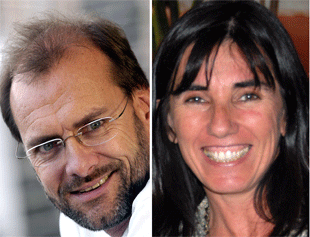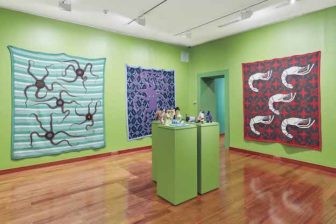Two political cultures coexist in
In the beginning of the twentieth century, with its agricultural production and booming middle class,
Rather than developing a “virtuous” model for inclusive development, Argentine political leaders have governed for only the narrow interests of their followers, constantly seeking a bigger share of a pie that just does not grow.
Faced with the obvious failings of these decades of political practice (and the human misery that has accompanied it), many in
The members of this new political generation recognize that the only way to break this vicious cycle of confrontation and breakdown is through collaboration. They are more prone to dialogue, more respectful and more tolerant of difference. They are children of democracy, free of the baggage and scars of decades of animosity and division that at times broke down into bloodshed. They understand dialogue as a means to reach common ground and build basic consensus that allows the creation of a shared vision.
This does not mean that everyone thinks alike. Ideological differences still exist. But there is a new view on how to resolve these differences and the right of the other to disagree.
The leaders of this new culture view power as a means not as the end. They view politics as a tool for transformation and share the need to strengthen democracy by promoting and working within institutions. They are aware of the need to have firm, objective rules and to professionalize and modernize the state in order to offer solutions and satisfy the needs of society.
The members of this new political culture are aware of the fact that globalization is a reality of the twenty-first century. They are aware that the growing demand for our products and services represents a competitive advantage and that immersion of the country in the international sphere is a matter of strategy.
Faced with our recent past, one may think we’re being too optimistic and naïve. We are still surrounded by many examples of the old political culture, but there are examples of small actions, gestures and attitudes that go beyond symbolic and demonstrate what we mean when we talk about a new political culture.
- In the last congressional elections, a candidate called for a meeting with members of the opposing parties to agree on proper conduct to ensure a positive campaign and suggest ways to have a clean election.
- A politician from the ruling party who was recently appointed to lead one of the major state agencies regularly assembles opposition legislators to discuss objectives and work plans and promote the exchange ideas.
- In 2007, pushing their differences aside, two national legislators, one belonging to the moderate right and the other to the moderate left, agreed to work together to propose the investigation in an alleged case of corruption in government contracting.
- A group of national legislators, from the ruling party and the opposition, agreed on a series of modifications to a bill proposed by the government and, as a group, met with the minister involved.Several of their proposals were incorporated in the final project.
- To promote transparency, a mayor developed an on-line procurement system and offered the system to other mayors from diverse political parties.
The great challenge for this generation of leaders is to ensure that this new political culture takes root. Doing so will demand having the courage to tackle structural reforms, while resisting the temptations and corrupting influence of the “old culture.”
These challenges imply investing energy and resources to strengthen and institutionalize political parties so that they may stop being mere providers of candidates and become organizations that promote clearly defined ideas and values. We need democratic organizations that allow the rise of new political leadership and organizations that analyze the country´s problems and generate proposals capable of transforming reality.
The distinct sectors of civil society owe it to the country to become involved in this process. Business, union and civil society leaders must put aside their fear of criticism (and perhaps of complicity), stop being mere spectators and become protagonists. There are several initiatives set forth by civil societies, such as Fundación Red de Acción Política (RAP) and other NGOs that aim to build trust among the diverse social actors and promote the debate of ideas.
The task at hand is the construction of venues where distinct sectors can come together to exchange ideas, debate initiatives and generate consensus to promote the consolidation of a new political culture that will allow Argentina to reinsert itself in the process of social, economic and institutional development in the not so distant future. Let’s get started.






